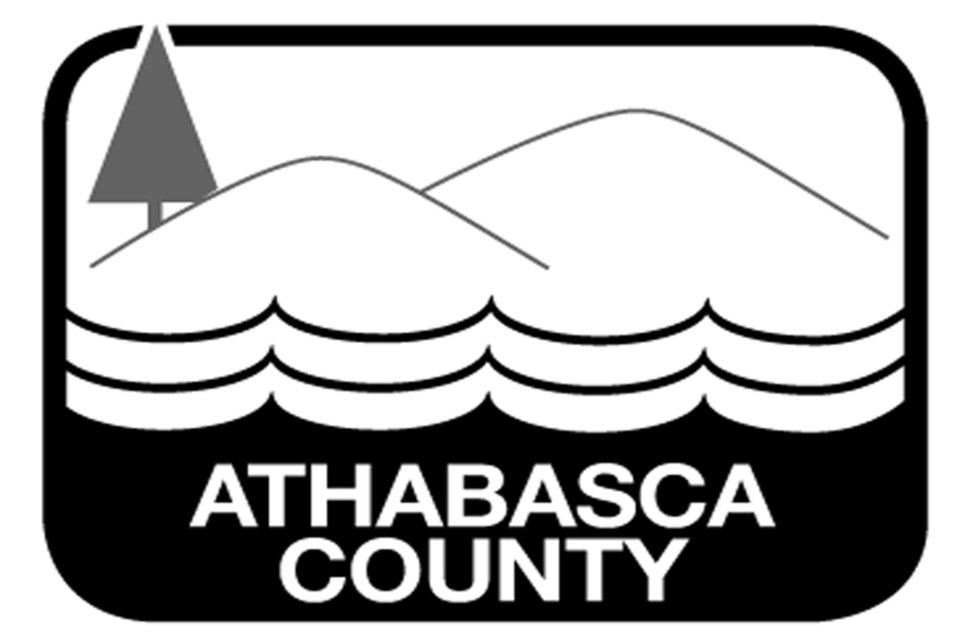ATHABASCA – The audio portion of Athabasca County council meetings will now be available for residents to access on their own time, on the county’s YouTube channel, for a week following the meeting, and then by request for a year afterward.
Councillors approved Policy 8100 regarding audio recording and live streaming of meetings at their Dec. 8 council meeting, following a half-hour discussion and an amendment. Further, council passed Bylaw 035-2020 regarding management, retention and disposition of records and information.
Director of corporate services Amber Oko presented the draft policy to councillors, which initially called for the audio and video to be posted to YouTube for a full year after the meeting is completed, but they were more comfortable with audio only and posting for a week, and then distributing it by request for a year.
“So, what we tried to do is take the best practices from organizations that are already doing audio and video recording and what we found is it outlines clearly when the meetings will be recorded and the circumstances in which meetings may be interrupted or portions of the meetings may be excluded from the audio recording,” Oko told council. “So, what this attempts to do is limit the risk that inappropriate or some sensitive information will be recorded and remain for the public for that year period.”
Section 3.6.2 of the policy document, refers to the subject of potential liability if an offensive, defamatory, incorrect or contrary statement is broadcast, recognizing that the possibility is increased with the offering of recordings.
“Accordingly, the chair has the discretion and authority, at any time to direct the termination or interruption of the live streaming and audio recording of the meeting if they consider it prudent or advisable to do so. Such direction will only be given in exceptional circumstances,” the policy reads.
Coun. Kevin Haines said he was surprised by all the liabilities involved and after some discussion moved that the decision be moved to a future meeting after further review. He was also concerned that audio only recordings may not provide the speaker’s identity. When his motion came to a vote though, it was defeated 6-2.
“I think, there is lots to digest here and there's some pretty good ideas out there. I wouldn't mind seeing it go over to a policy meeting for more discussion, a little bit more time to come up with some good ideas. That's me,” said Haines.
“So, faces won't be shown, but your faces could be shown and could legally be shown because these are public meetings open to the public. So, you don't have any expectation of privacy because you're a publicly elected figure,” county manager Ryan Maier clarified, adding the same holds true for delegations as they are participating in a public meeting.
Coun. Warren Griffin pointed out this could drastically change how meetings are run. He was also concerned about misidentification in audio recordings.
“We run a very informal meeting, we use the first names, we're not as rigid to the procedural bylaw that maybe we have should be or are,” he said. “That does slow down proceedings and it also puts that barrier of formality, which, quite frankly, at times, can be a barrier to council having honest discussions or, or be able to debate issues vigorously because I find the informality that we do enjoy right now, does allow us to work a lot better as a team.”
Coun. Dwayne Rawson didn’t buy the misidentification argument though, saying it would require the chair to add one more word to make the proper identification.
Coun. Christi Bilsky agreed, adding that the official record of council will still be the minutes that are produced afterwards — issues are discussed during a meeting, she said, and many opinions can be expressed, but unless a resolution is passed, anything said is not necessarily the opinion of council as a whole.
“That's our voice as a whole and the very first line of the policy (says) in an effort to promote transparency, public participation and access to municipal decision making. That's why we're doing this,” said Bilsky.
Rawson said he couldn’t understand why it has taken so long to approve the policy, saying he felt there were some who were against it no matter what changes were made.
“Anytime you’re going to do a policy, the thing to do is go out and headhunt other places and always pick the best practices. Anytime you can create a policy by picking out all the best practices in other areas, you've got a pretty solid policy here. I'm not sure why this delay in this. To me, it's just I think it's a delay tactic. I cannot understand why this has been going on for months now,” said Rawson.
Coun. Travais Johnson was in agreement.
“You know, sometimes I do or say things to get myself in trouble, but that’s part of the game, right? But I think we should get with the times and get recording them.”
Following Haines’ defeated motion to defer the decision, a vote to approve the amendment to make the audio available online for a week following the meeting and then for a year, by request, was approved, making the policy official. All three readings, and consensus to go to third reading, on Bylaw 035-2020 were also passed.
There are no meetings for the remainder of December, but council will start fresh in 2021 with the first meeting of the year coming up on Jan. 12 and another Jan. 28.


